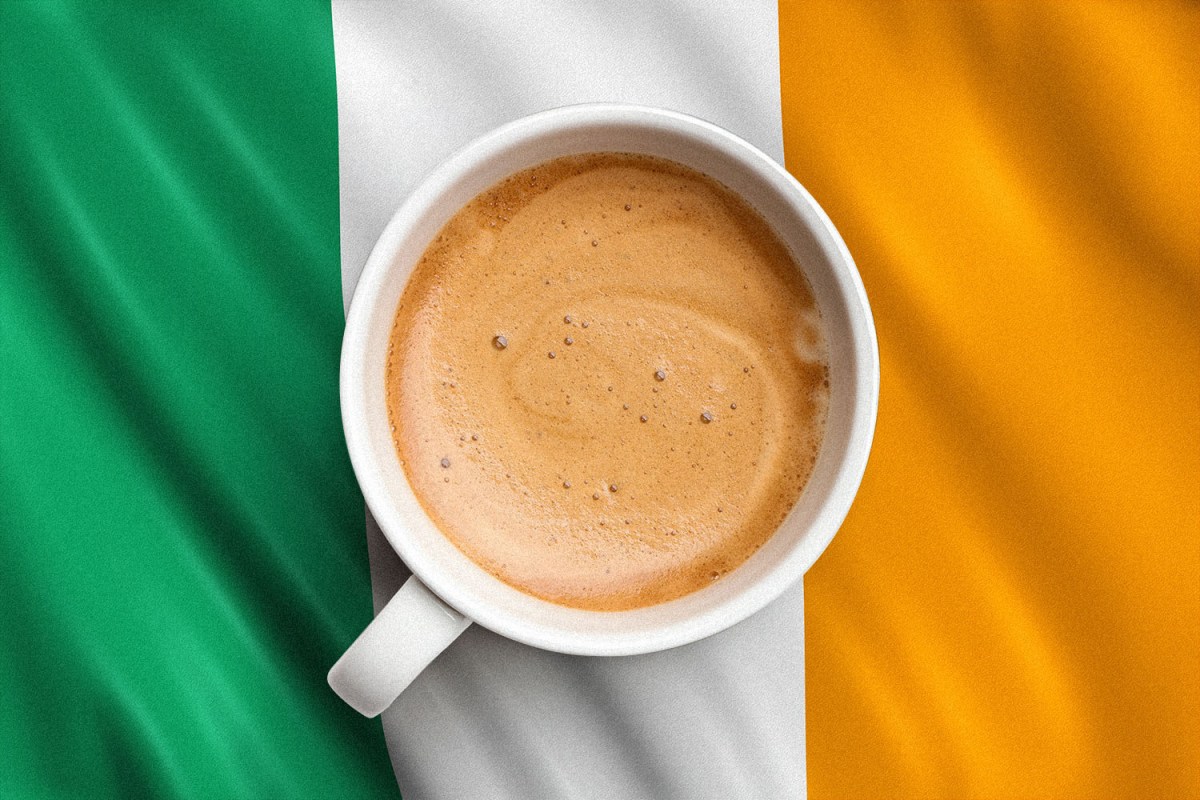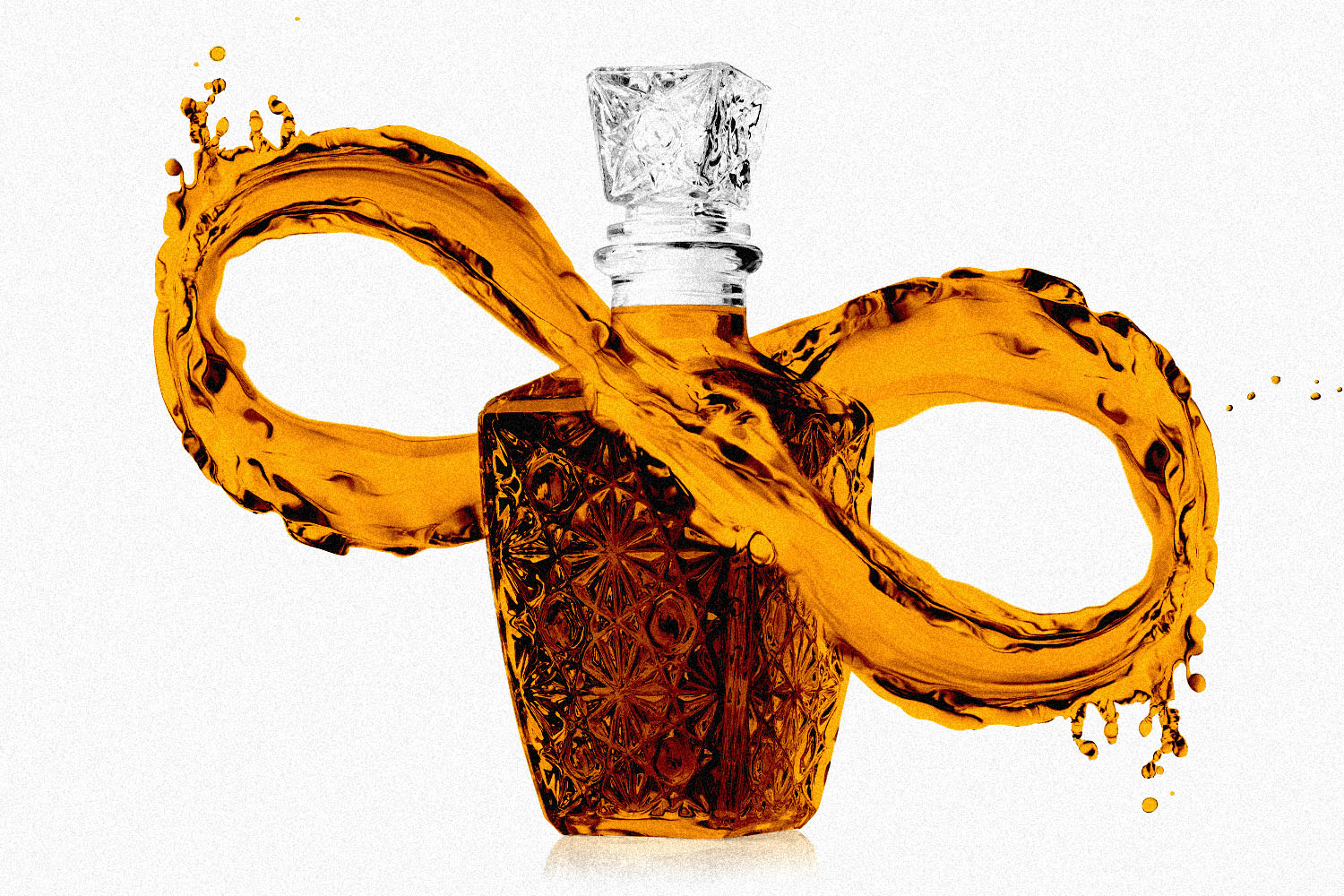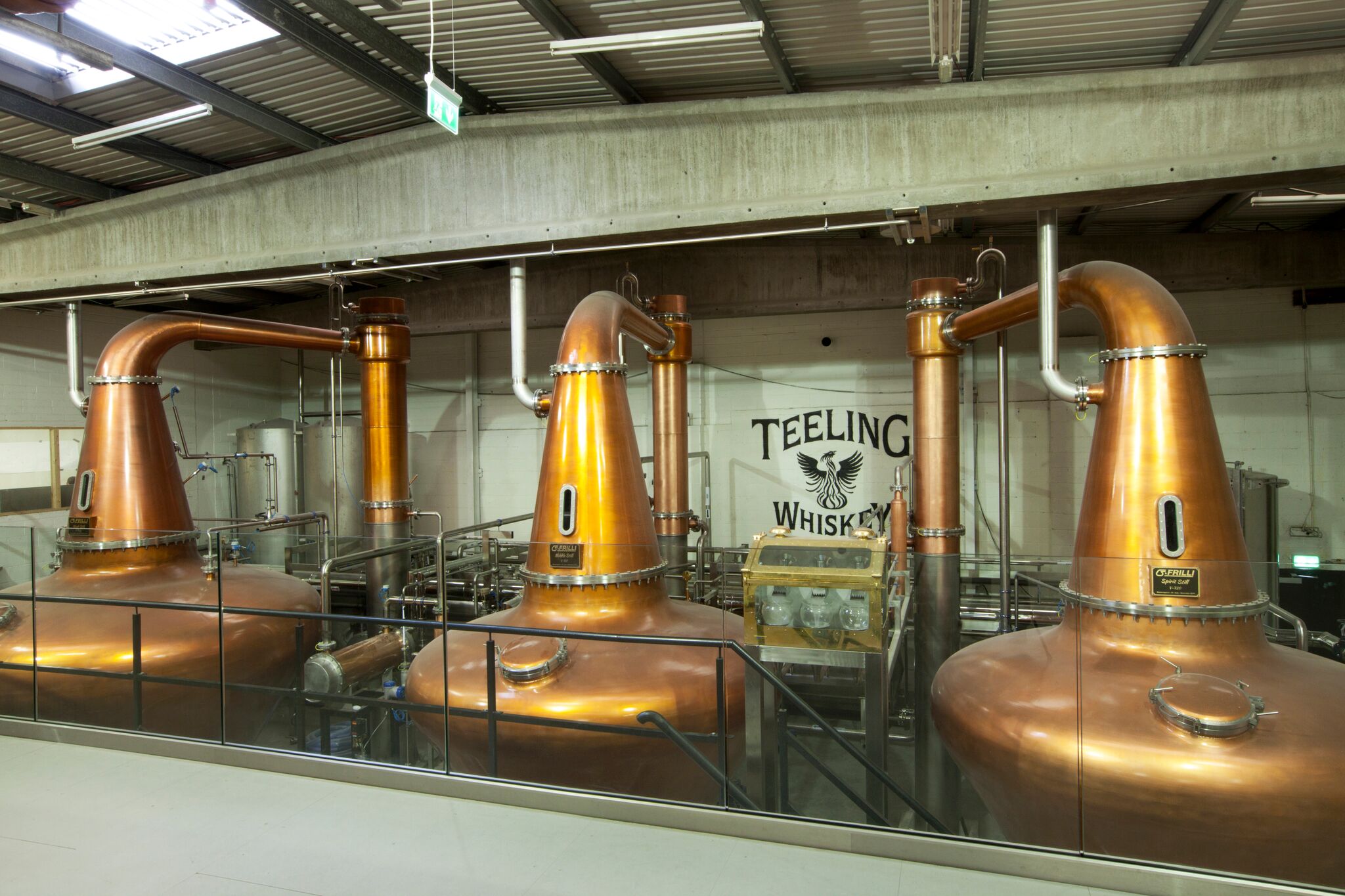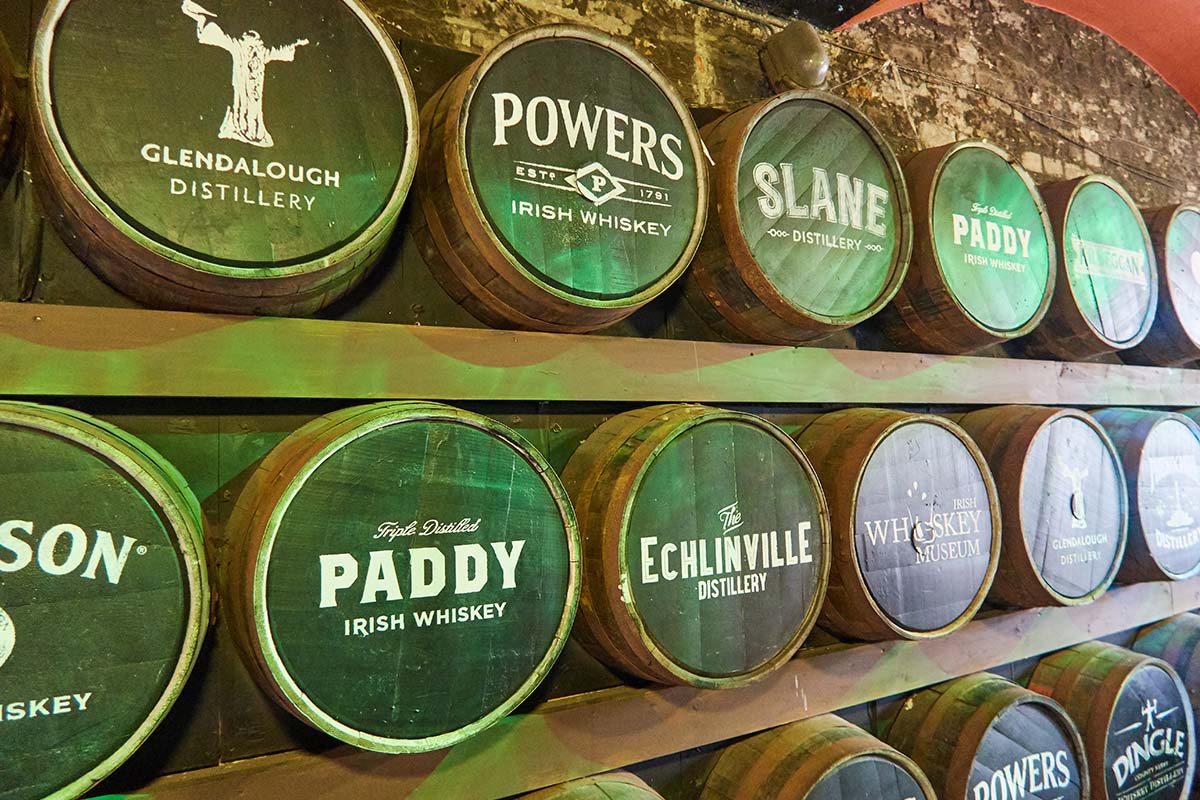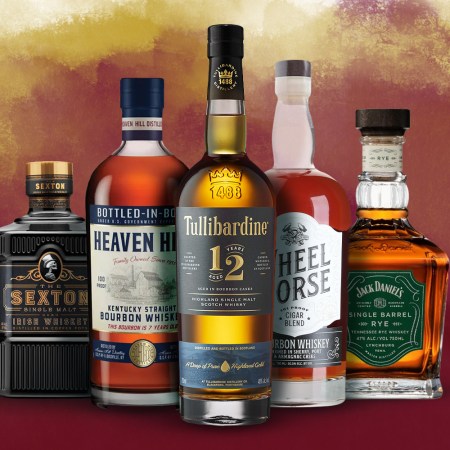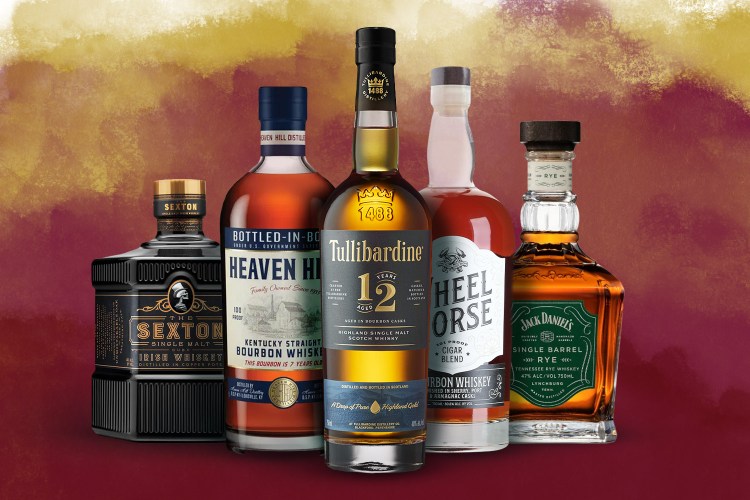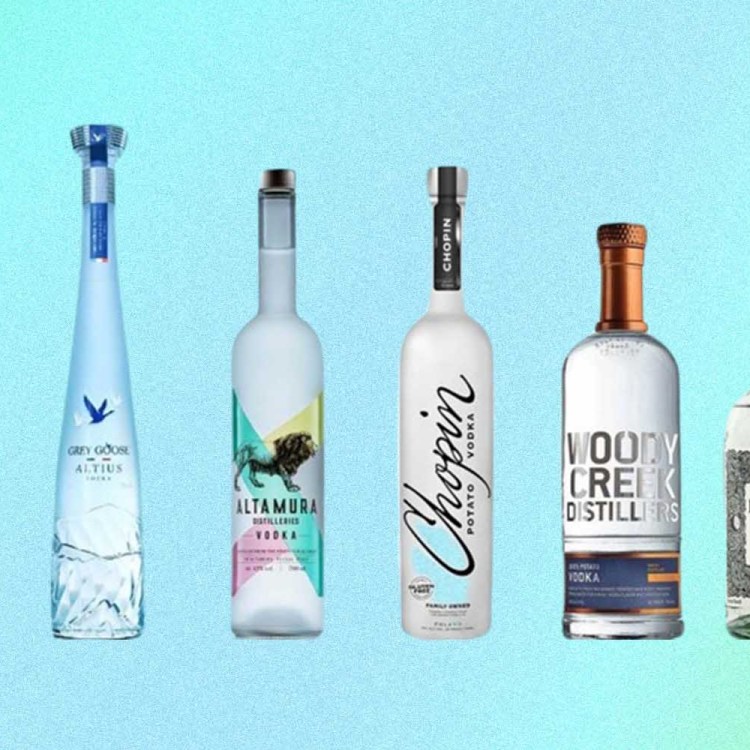As a coffee purist, I generally don’t like adding anything to my coffee — not even booze, despite my career in cocktails. My routine is typically several cups of black coffee throughout the day, spirits and cocktails at night, and never the twain shall meet. But I can’t deny that coffee cocktails do have their place, and as coronavirus shutdowns and social distancing have thrown schedules into disarray, I’ve been enjoying them more often.
The paradigmatic coffee cocktail is the Irish Coffee, which really is hard to beat for both its simplicity and the harmony of its ingredients. There are only four, which can be given in rhyme:
Cream, rich as an Irish brogue
Coffee, strong as a friendly hand
Sugar, sweet as the tongue of a rogue
Whiskey, smooth as the wit of the land
That’s an inspired combination, and one that lends itself to variations, too. Before going into those, it’s worth unpacking each element.
Whiskey
The whiskey should be Irish, of course, and typically an Irish blended whiskey. These are the most well-known Irish whiskeys, like the flagship offerings of Jameson, Bushmill’s or Tullamore Dew. Blends are most often made by mixing light, column-distilled grain whiskey with richer pot still or single malt whiskey. Blends play sweetly with the coffee, giving it some backbone without dominating the drink.
Coffee
Coffee is the main ingredient in the drink, so you should make it well. (See our recent guide for advice on how to make the perfect cup!) Beans with chocolatey and earthy notes are especially good here, so think about getting a good blend or single origin that’s not too strong on fruit notes. Central American coffees will typically be a good bet.
Sugar
In place of white sugar, use something with a little more character. Many recipes call for brown sugar, but I typically use a syrup of two parts demerara sugar to one part water, which is great to keep on hand for Old Fashioneds and other cocktails anyway.
Cream
Lastly there’s the cream — the richer, the better. And the most important part: it needs to be floated on top of the drink, not mixed into it. (As the recipe handed down to me by my Irish grandmother emphasizes, “Do Not stir.”) The idea is to drink the coffee through the cream, getting the perfect taste of both. You want a consistency somewhere between cream and whipped cream. An easy way to achieve this is to shake the cream in a half-full mason jar until it’s slightly aerated, then float it gently on top of the coffee. Get it right and the first sips of hot coffee through the cold cream will be delightful.
With that covered, let’s get to the actual recipe. The classic Irish Coffee glass, like that used at the famous Buena Vista in San Francisco, is only six ounces. If you don’t have one of those, you’ll want to use a fairly small mug to nail the proportions. Be sure to pre-heat it with some hot water as well; the whiskey is going to cool the coffee, so a hot vessel helps keep the drink warm for as long as possible.
1 ½ oz Irish whiskey
1/3 oz rich demerara syrup
4-5 oz coffee
Cream
Combine all but the cream in the heated mug, and give it a quick stir to mix. Float the lightly aerated cream on top last. A grating of fresh nutmeg or cinnamon is an optional but recommended touch.
This a perfect drink, but like many classic cocktail formulas, it’s also receptive to modification. Below are a few ways to take it in a different direction.
Change the whiskey
As mentioned above, Irish coffees are typically made with fairly light blended whiskey. Before that style took over in the 20th century, Irish whiskeys were typically made in the “pot still” variety. As the name suggests, these are made in copper pot stills, and mashed from a mix of malted and unmalted barley. These are more flavorful and robust than the typical blend, and the style — alongside Irish single malt — has enjoyed a renaissance in recent years. These will make a more assertive Irish Coffee than the standard recipe. Redbreast is one of the most widely available of these, and works quite nicely.
Change the spirit
If it’s not Irish whiskey, it’s not an Irish Coffee, but the template of the recipe is nonetheless adaptable to other spirits. A reposado or añejo tequila is very good with coffee, for example. There’s also a long tradition in Scandinavia of mixing coffee and aquavit. This involves placing a coin at the bottom of a cup, adding coffee until you can’t see the coin, and then adding aquavit until you can see the coin again. Better idea: Skip the coin and just use aquavit in place of whiskey in the recipe above.
Change the sweetener
Instead of sugar, you can use a liqueur to provide sweetness. Cognac-based orange liqueurs like Grand Marnier or Ferrand Curacao are very nice for this, although using them entirely in place of typical base spirits can produce a very sweet drink. An ounce of one of these with a half ounce of cognac is very good, though.
Change the coffee
Coffees with chocolatey notes typically play best in the Irish Coffee, but you can mix things up with coffees that bring in more fruit. Many Ethiopian and Kenyan coffees will deliver that, and natural processed coffees often have very bright qualities. These tend to be lighter as well, so they may be a better match for a light Irish blend than a more assertive spirit that might overpower a delicate coffee.
Change the cream
One last suggestion that can subtly change the drink is to flavor the cream. One idea I’m particularly fond of is the burnt cinnamon whipped cream from Statebird Provisions in San Francisco. This involves lightly toasting cinnamon sticks with a torch or broiler, infusing them into warm cream, and then refrigerating the mixture for several hours to extract flavor. This is then strained and whisked to make a whipped cream. (At Statebird they also add a touch of sour cream and sugar, if you’d like to make it even more complex.) This lightly spiced cream is a wonderful topping for an Irish Coffee-style cocktail, and is especially good with the tequila variation.
Join America's Fastest Growing Spirits Newsletter THE SPILL. Unlock all the reviews, recipes and revelry — and get 15% off award-winning La Tierra de Acre Mezcal.
